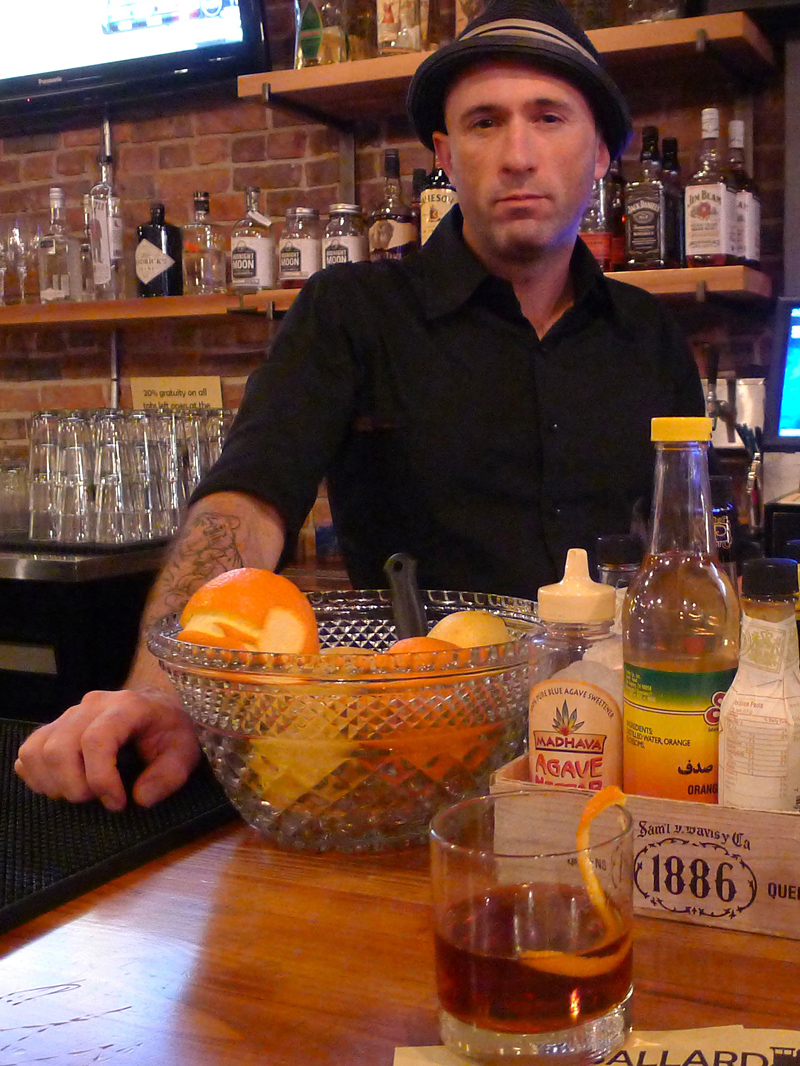The state House of Representatives overwhelmingly approved four bills that would overhaul Washington’s laws on driving under the influence earlier this week, setting the stage for reform on key issues like requiring drunk drivers who kill a parent to pay child support for their victim’s kids. Also included in one piece of legislation is a provision that could permit prosecutors to slap people who sniff chemicals with a DUI.

The bill — HB 2443 — is the work of Rep. Roger Goodman, a Democrat from Kirkland. It deals broadly with DUI issues, including a proposal to strengthen the state’s ignition-interlock program by adding cameras to the devices to prevent DUI convicts from gaming the system, and having someone else blow to start their vehicle.
Two sections tacked on at the end of the 39-page bill deal with huffing, though that exact word isn’t used. The proposed law says people can be found guilty of DUI if they exhibit “the effects of having inhaled or ingested any chemical, whether or not a legal substance, for its intoxicating or hallucinatory effects.” The effects mentioned include slurred speech and lack of coordination, and evidence can include “possession of [a] canister or container” known for being used to get high.
So whose idea was this? Is there an epidemic of Washington drivers getting behind the wheel with paint-stained mouths and glue-clogged nostrils? And, more importantly, how is huffing and driving not already illegal?
Goodman says that the huffing provision was suggested by county prosecutors who are currently powerless to charge suspected inhalant abusers with DUI. Even though huffing can cause intense euphoria and vivid hallucinations (not to mention headaches, nausea, vomiting, loss of motor skills, hearing loss, limb spasms, liver and kidney damage, pneumonia, and cardiac arrest), state law only covers substances intended for human consumption, not gasoline or paint.
“It’s because of the wording in the way the state law defines ‘drug,'” Goodman explains. “It was not defined to include [huffing.] It includes everything else, but not that.”
Obviously, that’s a gaping a loophole. Amy Freedheim, King County’s senior deputy prosecuting attorney felony traffic cases, says she can recall at least one case where a suspected inhalant abuser was let off the hook because of the technicality.
“We started looking at this and said ‘Of course it’s a DUI,'” Freedheim says. “Then we noticed — ‘Oh crap, it’s not.'”
Huffing has been around for decades, with the Ramones singing the praises of sniffing glue way back in 1976, and horror stories of street kids in Africa and south Asia abusing paint thinner and other chemicals making the rounds more recently. Now, according to Freedheim, huffing is on the rise among 12- to 17-year-olds, and she says she’s heard anecdotal evidence that it’s becoming a problem among military veterans returning from overseas.
Freedheim notes that someone caught driving and huffing could currently be charged with reckless driving. But if Goodman’s bill, which was passed unanimously by the House, is approved by the Senate and signed by the Governor, those same offenders would face much stiffer penalties, and could be ordered to undergo mandatory substance abuse counseling.
“They’re becoming impaired as much as somebody out drinking alcohol and out absusing drugs,” Freedheim says. “It just breaks your heart that’s how despareate people are to become impaired.”






